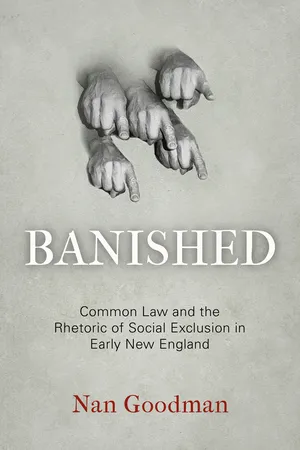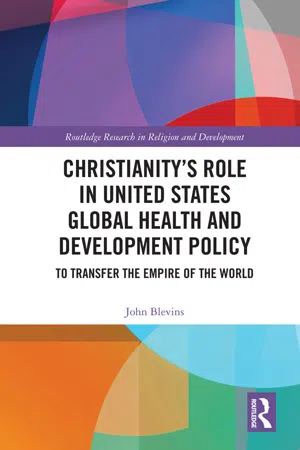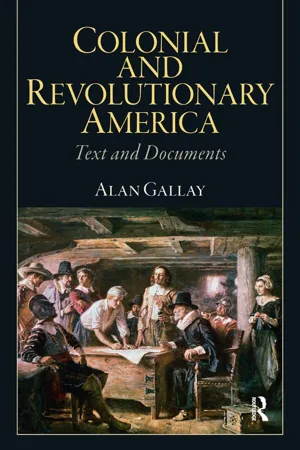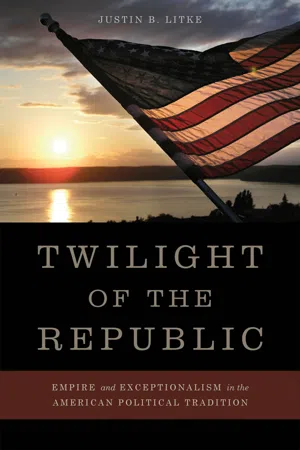History
Massachusetts Bay Colony
The Massachusetts Bay Colony was a British settlement established in the early 17th century in present-day Massachusetts. It was founded by a group of Puritan settlers seeking religious freedom and a new way of life. The colony played a significant role in the development of the New England region and had a lasting impact on American history.
Written by Perlego with AI-assistance
Related key terms
5 Key excerpts on "Massachusetts Bay Colony"
- eBook - ePub
- Jerome R Reich(Author)
- 2016(Publication Date)
- Routledge(Publisher)
The “others” for whom the Pilgrims were the “stepping-stones” were the Puritans. In 1623 the Council of New England granted land to the Dorchester Company to plant a colony of fishermen in what is now Massachusetts. The experiment failed, but some of the settlers remained and founded the town of Salem. In 1628 a group of Puritan merchants formed the Company of New England and sent an additional group of settlers to Salem under the leadership of John Endecott. The following year the New England Company obtained a new charter from Charles I changing its name to the Massachusetts Bay Company and granting it the right to govern the territory under its jurisdiction. Several factors impelled the Puritans to take speedy advantage of this new charter. Archbishop Laud insisted that Anglican practices be followed to the letter in every church, and ministers with Puritan leanings be dismissed. In 1628 the king had just dissolved Parliament and had made it clear that he intended to rule the nation, levy taxes, and conduct what the Puritans considered a pro-Catholic foreign policy without any interference. Lastly, during the 1620s a depression in the cloth industry (in addition to the previously discussed enclosure movement and inflation) brought great economic distress to the southern and eastern counties of England, where the majority of Puritans lived.The man who would become the leader of the Massachusetts Bay Colony was John Winthrop. Winthrop received a legal education at Cambridge, held a royal judicial post, and was a substantial landowner in Suffolk County. However, by the end of the 1620s, he no longer held any office and was troubled by debt. Winthrop was well aware of the practical reasons for settling in America, but he had strong religious motivation as well. As he wrote in his The History of New England from 1630 to 1649 - eBook - ePub
Banished
Common Law and the Rhetoric of Social Exclusion in Early New England
- Nan Goodman(Author)
- 2012(Publication Date)
- University of Pennsylvania Press(Publisher)
14Not Religion
Unsurprisingly those among the banished whose names still resonate today made their banishments memorable by complaining loudly about them. If their names are known, however, the accounts of their punishments and of the consequences that followed in the wake of their banishments have been neglected. Two factors account for this neglect. The first is that their stories—like most of the stories that have come down to us from Puritan America—have been read by scholars almost exclusively for the light they shed on the Puritans’ religion and religious practices. In their focus on religion, scholars of history and literature have done no more than follow the Puritans’ lead. The initial colonies of Plymouth and Massachusetts Bay as well as the subsequent colonies of New Haven and Connecticut were founded on the principle of religious congregationalism, and the communities that were established in these places were structured to serve that end. If an individual qualified for church membership—a qualification that was based on the church’s judgment about the candidate’s conversion experience—then the candidate also qualified for membership in the colony, and in this way religion provided an undeniably strong basis for social cohesion.One of the results of the scholarly focus on religion has been to emphasize religion’s role in building this social cohesion. Histories of the period, both literary and social, are replete with references to the founding documents—preeminent among them John Winthrop’s lay sermon “A Model of Christian Charity”—that not only emphasize the connections between people that religion enabled but also help us think through the principle of community membership in this light. For Winthrop, the Puritan community was “knit together” in “the body of Christ,” by which it formed “a city on the hill” for all to emulate, if not to enter.15 - eBook - ePub
Christianity's Role in United States Global Health and Development Policy
To Transfer the Empire of the World
- John Blevins(Author)
- 2018(Publication Date)
- Routledge(Publisher)
19These Protestant leaders in the American colonies were united in their belief that America had a specific destiny in helping to bring about God’s kingdom on earth. In his treatise, Magnalia Christi Americani, Cotton Mather argued that God’s mission for the salvation of the world was linked to America’s destiny.20 Jonathan Edwards, the Puritan pastor whose sermons helped set the spark for the religious revival in America known as the Great Awakening, believed that America was the site from which God’s final work of the redemption of the world prior to the return of Christ had begun.21Various historians have noted the significance of this Puritan belief in America’s distinctive and essential role in God’s plan for humanity. The American historian Walter McDougall argued that American principles had their antecedent in the European societies from which the colonists came and that those principles could only come to full flower in the colony: “In the eyes of the Founding Fathers, clergymen, publicists, and other opinion leaders the new nation was a distillation of virtues latent in the civilization they left behind, but susceptible of realization only in America.”22 - eBook - ePub
- Alan Gallay(Author)
- 2016(Publication Date)
- Routledge(Publisher)
They looked to their powerful neighbors, the Puritans, who established Massachusetts Bay. Massachusetts Bay: Creating a Christian Commonwealth Unlike the Pilgrims, who believed the Church of England too corrupt to be purified, and therefore separated from it, most Puritans were non-separatists intending to purify the Church of England from within. If they fled persecution by removing to the New World, then they would have abandoned their charge. After wrestling with this problem for many months, the Puritan community decided that migration would be justified if they created a “New Jerusalem,” a model for the rest of the world, especially England, on how to build a truly Christian society. The Puritans received a charter from the English government to settle Massachusetts, the government only too happy to have these troublemakers leave England but remain useful to the nation by expanding its domain abroad. The mostly middle-and upper-middle-class settlers were highly organized and focused on the task before them. Thus they prepared well for the migration and did not experience the starving times faced by the Virginians and the Pilgrims. The Great Migration One thousand Puritans, led by John Winthrop, a pious and talented lawyer, embarked for the New World in 1630. Even before they arrived, Winthrop worried about the Puritans keeping to their purpose. He feared the people’s seduction by the New World’s bounty and the lack of traditional social structures. In a long sermon preached aboard the flagship Arabella, Winthrop reminded the Puritans that they were not emigrating to escape the social classes they were born into, that the poor should not expect to rise above the rich. He said that God had ordained the social order, “in all times some must be rich, some poor, some highe and eminent in power and dignite; others mean and in subjeccion.” The people were to possess the land, but not be possessed by it - eBook - ePub
Twilight of the Republic
Empire and Exceptionalism in the American Political Tradition
- Justin B. Litke(Author)
- 2013(Publication Date)
- The University Press of Kentucky(Publisher)
22 Just as Luther, Calvin, and the other Reformers began the process of freeing the Christian world of the pernicious influence of “popery,” so also would the Puritan colonists' efforts redound to that goal. Just as the Reformers called for a rededication to the central principles of the faith, so also did the Reformers' movement itself—Winthrop and many others thought—stand in need of reinvigoration. At the moment, the English church seemed to be edging toward rapprochement with Catholicism. Although the 1630 Massachusetts Bay colonists did not go so far as to believe that separation from the English church was the only way to reform—in contradistinction to the 1620 emigrants, they were decidedly against this—their strategy did involve a retreat from its midst. It was thought that a new land, isolated from the pernicious tendencies of the Arminian powers in London and Canterbury, could provide shelter from the coming “general calamity” portended by the ascendancy of these forces.Despite the military metaphors, however, the Puritans were not sailing to New England to engage in armed conflict with the Catholic missionaries there. Neither were they emigrating only for the purpose of conversion and the spread of the Gospel. They were setting up a bulwark, a point of resistance that is stationary by nature. They were setting up a colony that would run according to a new way of life, which would in turn serve as a bulwark. The spread of the Gospel would be one with the maintenance of their community and the preservation of their main mission there—fulfilling the covenant with God upon which they were about to enter—and it is important to note this here because it sheds light on the cognate passages in the “Model” discourse, which I will examine later.23
Learn about this page
Index pages curate the most relevant extracts from our library of academic textbooks. They’ve been created using an in-house natural language model (NLM), each adding context and meaning to key research topics.




